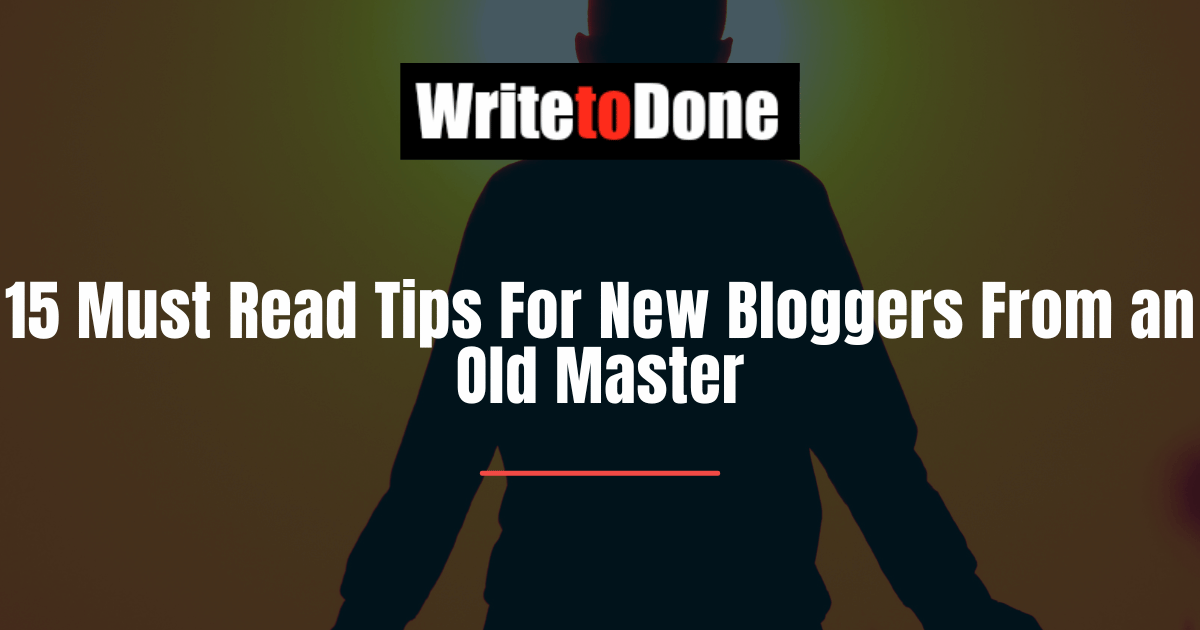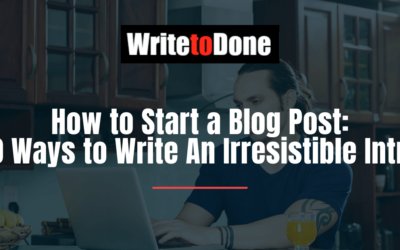After blogging for years now, it’s hard to remember what it was like when I first started out. I’ve written thousands of posts, not only for Zen Habits and this blog, but as guest posts (and in the past, paid posts) for dozens of other blogs.
But I’m going to force myself to go back to those early days, when I tentatively started a simple journal on Blogger.com and put my first shaky words out onto the web.
This is a guide for new bloggers — so if you’re experienced, feel free to skip this one. This is the post I wish I’d read when I started, and in a sense I’m writing this to the Leo of January 2007 who knew nothing about what he was doing.
Hi younger (and infinitely more handsome) Leo … rest easy. You’ll do fine. You’ll write some crappy posts, but that’s OK. In doing so, you’ll find your voice, find what works, and start to connect with an audience.
Be brave, and forge on.
That said, here are some tips to help you along on your journey. Blogging basics. Oh, and feel free to break any of these “rules”, as nothing is ever set in stone.
- Write for the reader. This is the most fundamental of the fundamentals, and though this list isn’t in order of importance I’d be remiss if I didn’t start here. While a blog can be a personal journal, if you want an audience of more than your friends and family, write for an audience. Don’t just write about your random thoughts and experiences, but think of what the reader wants to know, what the reader’s concerns are, what the reader is interested in, and how you can help provide that.
- Solve the reader’s problems. What are the reader’s problems? Solve them, one post at a time. To do this, I think about the problems I’ve been addressing in my own life, and as it turns out, most people have the same problems. I’m not as unique as I thought. And then I write about how I’ve been solving them — what actually works for me. People seem to find that useful.
- Put yourself in there. While the post should be for the reader, it’s really a conversation between you and the reader. So don’t be afraid to put yourself in the post. Share what you’ve learned, talk about your life, as it’s relevant to the post, and let your personality show. Make it personal, and the reader will connect with you.
- Find your voice. This is the personality I talked about above. It’s about finding a conversational tone, but it’s more: you have a unique voice, and that voice speaks to the reader, in her head, as she reads your posts. You need to learn to find your voice, by experimenting, trial and error. The more you write the more that voice will emerge.
- Be concise. This is an ironic statement given that this is a long-ish post, but concise doesn’t mean short. It means there aren’t a lot of unnecessary words. Write all the blather you want, but go back and edit, so you’re not wasting the reader’s time.
- Make it scannable. The reality of reading on the Internet is that people scan articles, get the main points, and only if those main points are worthy of their time do they read the full text — despite what long-winded ranting bloggers have to say about the issue. So write for that reality, if you want people to read your posts: make it easy to scan and find your main points, through lists, sub-titles, blockquotes, or the like.
- Headlines matter. The most important few words of your posts are your headlines (or post titles). They need to catch the reader’s attention and promise to solve a problem the reader has. If it doesn’t do this you’ve wasted a headline.
- Offer solutions. This is almost a repeat of an earlier point, but it’s worth stressing. Often a blogger will bring up a problem but then end the post. You need to offer a solution, or the reader will be left feeling unsatisfied. If you don’t have a solution, maybe toss out some ideas and then ask for reader solutions. But in most cases, write a solution.
- Post regularly. This doesn’t have to be daily, but if you haven’t posted for a few weeks (except to apologies for the lack of posts), you’re not likely to build a good-sized audience. People subscribe because they have a reasonable expectation, based on past performance, that you’re going to come out with useful content on a regular basis. I’d say weekly posts are a minimum, and 2-5 times weekly is ideal. More than once daily isn’t recommended (unless you’re a huge blog like Lifehacker) because people don’t like too many posts in their inbox.
- Mix up post lengths. I prefer long-ish posts full of useful information, but short posts that get to the point and have a big impact are good too. Don’t be set on one post length. If a post gets so long that it takes 20 minutes to read, you might narrow the topic and split it into two posts.
- Make it worth talking about. Don’t just write what everyone else writes. Write about something that’s a bit (or a lot) different, or in a way that’s different. Write about something that people will want to respond to, pass on, talk about with others. Be bold and be different.
- Link often. Don’t be self-contained. Don’t be afraid to send your readers to other good posts or blogs, because they’ll appreciate it, and so will the other bloggers. Be a part of a wider conversation. For example, my favorite blogs about blogging: Problogger, Copyblogger, Daily Blog Tips, Chris Brogan and Chris Garrett.
- Feel free to tell stories. Not every posts should be a “story” post, but a well told story captures the reader and conveys information in a time-tested form. A good method to try out is starting a post with a relevant story.
- Establish why the post is important. The intro of your post — the first 3-7 paragraphs (roughly) — should not only grab the reader’s attention but establish why the reader should even care about the post. Show why the problem is a problem, and why the reader needs to read the rest of the post.
- Read the best, and mimic them. The best bloggers break all of these rules but do it so well. For example, Dooce, Textism and Idle Words rarely make things scannable, but they’re oh so readable. Read widely, not just within your niche: check out Daring Fireball, Merlin Mann, Paul Graham, Justin Blanton, Shawn Blanc, Patrick Rhone, just to get started.

















